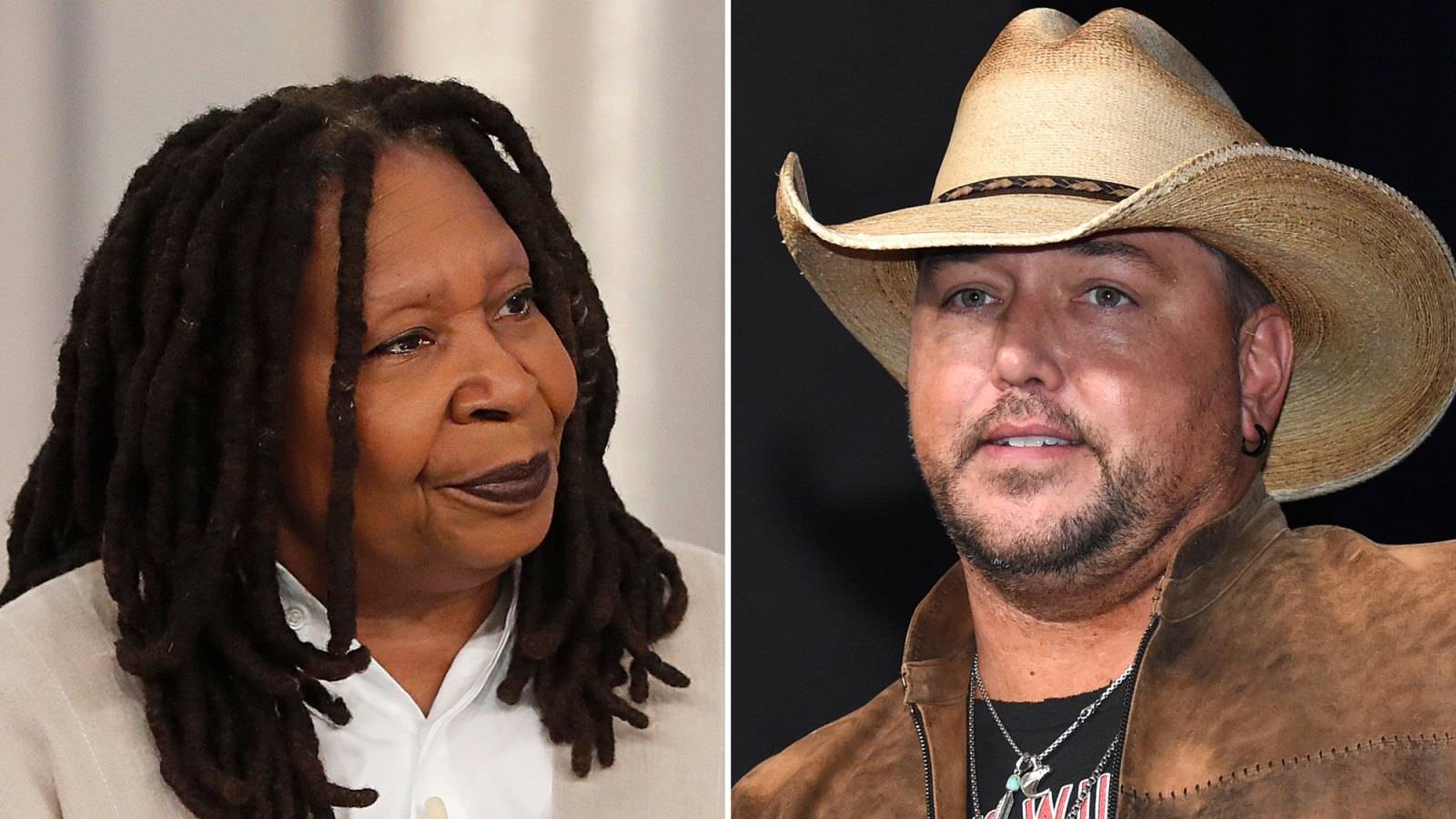"The View" Criticises Jason Aldean's Controversial Music Video for Allegedly Perpetuating Racism
The ladies of "The View" are not holding back in expressing their disapproval of country star Jason Aldean's latest music video, which has faced widespread criticism for potentially perpetuating racism. Host Whoopi Goldberg led the show on Thursday, chastising Aldean for incorporating footage of protests in his video for "Try That in a Small Town," sparking backlash due to its juxtaposition with lyrics like "Got a gun that my granddad gave me / They say one day they're going to round up / Well, that s--- might fly in the city, good luck / Try that in a small town."
Goldberg raised concerns about the choice of imagery and lyrics, stating that Aldean's video depicts life in a small town where people look out for one another, including those involved in the Black Lives Matter movement. However, she pointed out that the combination of these elements could be misinterpreted, leaving viewers questioning whether the song refers to Black people specifically and raising concerns about potential racial connotations.
Conservative co-host Alyssa Farah Gryphon expressed some leniency towards Aldean, hoping that his intentions were not to incite division, glorify violence, or perpetuate racism. However, she acknowledged that the song's lyrics reminded her of the tragic killing of Ahmaud Arbery in February 2020, a Black man shot and killed in a small town in the South while unarmed and innocent.
On the other hand, co-hosts Joy Behar and Sunny Hostin were less forgiving. Behar described the song as "deplorable" and "annoying," while Hostin, a legal expert, drew a personal connection to the song's imagery.
Hostin shared her family's painful history, explaining that her interracial parents were forced to leave South Carolina due to threats from the KKK, and she believes that Aldean's video tapped into troubling imagery reminiscent of "sundown areas" and racism. She asserted that the issue of race remains a significant problem in the United States, yet acknowledgment and resolution seem elusive.
The criticism didn't go unnoticed by Aldean, who responded via tweet amid the mounting backlash. He defended his song, emphasising that it had been released in May, not as a response to recent events, and stated that he had been accused of releasing a "pro-lynching" song, a claim he found meritless and dangerous. Aldean clarified that the song's lyrics do not reference race while incorporating real news footage in the video's runtime.
The controversy surrounding the music video prompted CMT to pull "Try That in a Small Town" from its rotation, reflecting the seriousness of the concerns raised by the show's hosts and viewers alike.
The debate over the video highlights the sensitivity surrounding issues of race and imagery in music and media. Artists and content creators must tread carefully when addressing such topics, as the potential for misinterpretation and the perpetuation of harmful stereotypes is significant. It also underscores the need for ongoing discussions and self-reflection within the entertainment industry to ensure that artistic expression is mindful of the social implications it may carry.
As "The View" discussion illustrates, racism remains a deeply rooted issue in society, and conversations about its existence should not be dismissed or avoided. Open dialogue and acknowledgment of historical injustices are vital steps towards fostering understanding, empathy, and progress in our collective journey towards a more inclusive and equitable society.
The responsibility falls on all individuals, including artists and media creators, to be conscious of the impact their work can have on shaping perceptions and attitudes in society.
As the controversy surrounding Jason Aldean's music video continues to spark discussions, it serves as a reminder of the power and responsibility that artists hold in shaping public perceptions and conversations about sensitive issues like racism. While some viewers may interpret the video and lyrics as merely artistic expression, others find resonance with painful historical events and racial tensions.
In the age of social media and instant sharing, artists must be aware of the potential impact of their work, especially when it touches on sensitive subjects. Art has the ability to provoke emotions and reflections, but it also has the potential to inadvertently perpetuate harmful narratives if not handled thoughtfully.
The discourse on "The View" highlights the complexity of addressing race-related themes in artistic endeavours. It emphasises the importance of diverse perspectives in media, both in the content produced and in the creators themselves. Promoting inclusivity and representation can lead to more nuanced and sensitive storytelling that reflects the realities and experiences of various communities.
As consumers of media, we also have a role to play in holding artists accountable for the messages conveyed through their work. Engaging in constructive conversations, providing feedback, and encouraging positive and inclusive storytelling can create a collective demand for responsible artistic expression.
Ultimately, artists should use their platform to promote understanding, empathy, and unity, acknowledging the power they possess in influencing society's perceptions and attitudes. By fostering open discussions and addressing difficult topics with sensitivity, art can become a catalyst for positive change and a force that unites rather than divides.
As the conversation surrounding Jason Aldean's music video unfolds, it becomes an opportunity for self-reflection not only for artists but also for the audience. By critically analysing the media we consume and engaging in thoughtful dialogue, we can collectively contribute to a more inclusive and compassionate society.



No comments yet
Be the first to share your thoughts!